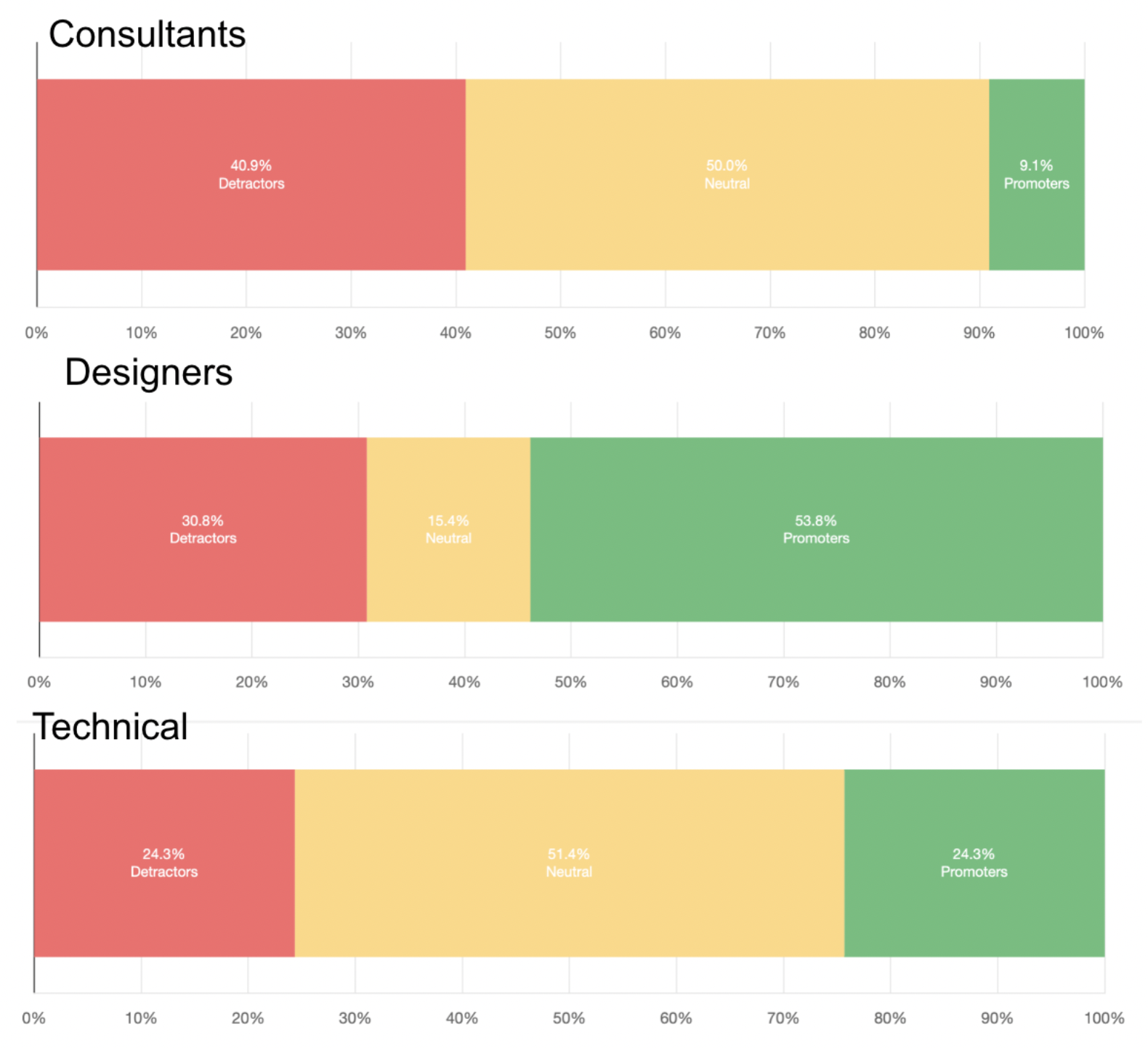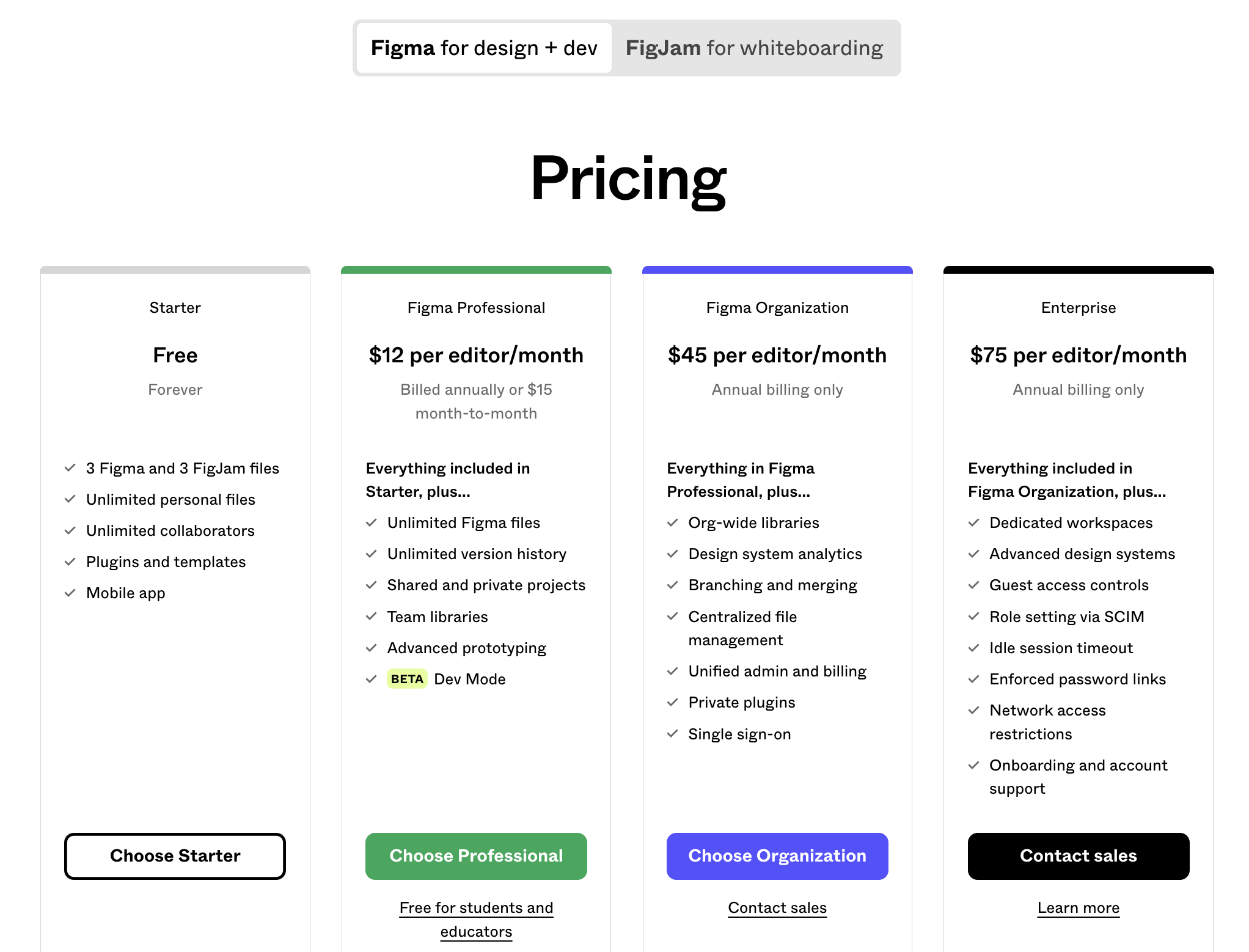AI Pricing Studies: Figma AI
Steven Forth is a Managing Partner at Ibbaka. See his Skill Profile on Ibbaka Talio.
Figma has emerged as one of the standard tools for many designers. We use it at Ibbaka for our work on Valio. I happened to be in San Francisco during Config 2023, Figma’s user conference, and was impressed by the scale of the event and the passion of the participants.
Ibbaka recently shared some research on price acceptance for AI-powered assistants like Microsoft Copilot for MS 365. One of the results that surprised me in this research was that designers are among the most open to applications of AI.
Given this, it is not surprising that Figma has introduced its own AI productivity tool, Figma AI.
For those not familiar with Figma, it is an application used to make interactive prototypes of user interfaces and then to collaborate and comment. It helps designers, developers, and the business team develop software more quickly and predictably.
Here is the pricing page for the standard Figma packages. Pricing is per user. Fences are mostly by function (a fence is how packages are differentiated and are used to guide buyers into a package and to force upsell).
Figma AI is being offered as a separate module that integrates ChatGPT with Figma. It can be used to generate text or images. Both are things that designers spend a lot of time doing and where they sometimes get blocked. Here is the pricing for Figma AI.
Most designers will want to have both the text and image generation function, so the Text + Images combination is legitimately the ‘most popular.’ (On many pricing pages ‘most popular’ really means ‘this is what we want you to buy.’) Sixteen dollars is less than what you would pay for a straight Chat GPT subscription ($20) and Figma AI combines Chat GPT and Dall-E functionality.
How does Figma AI pricing compare to the standard Figma pricing?
Figma AI Text is priced 25% below Figma Professional, but is this a reasonable comparison? I don’t think so. Any designer who is going to buy Figma AI is probably going to buy Image + Text, which is one-third more expensive than Figma Professional. So for the individual designer, Figma thinks Figma AI is more valuable than Figma itself!
Of course, one has to have Figma to use Figma AI, this is a platform with extensions packaging patterns, so the real comparison is Figma Professional at $12 per month or Figma Professional with Figma AI Texts + Images, which comes to $28 per month. The bundle is more than twice the base price.
Is this excessive?
Before we answer this it is worth remembering that costs are coming into play. These AIs are expensive to develop and not cheap to operate. A chunk of this money is going to Open.ai. There is no doubt a pricing floor imposed by the cost of delivering this AI-based functionality.
Each designer will need to decide if the extra cost is worth it. From a value perspective, assuming a designer’s time is worth $100 per hour, Figma AI needs to save less than 10 minutes a month. More importantly, if Figma AI contributes to a valuable idea, and helps break through creative blocks, this could be far more valuable than anything that comes from time savings.
Some AI packaging options
Figma’s approach to AI pricing is in line with what many other companies are doing, both in having a separate module and in pricing it at a premium to the base subscription. This is what Microsoft did with Copilot and Notion has done with Notion AI.
There are other ways to package AI of course. In some cases, it is being layered in as part of standard functionality, sometimes with a price increase, sometimes not. Or AI is being positioned as a standalone offer that can be purchased and is priced, independently.
All three of these packaging options make sense in different contexts. A quick guide.
New Value Drivers for New Customers? Use the independent module pattern
Existing Value Drivers for Existing Customers? Use the embedded functionality pattern
New Value Drivers for Existing Customers? Use the platform extension pattern














